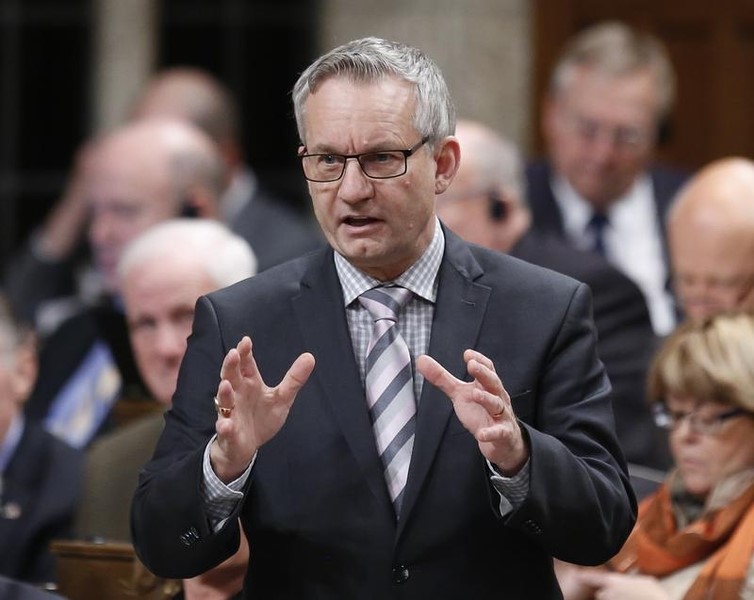VANCOUVER (Reuters) - The Canadian government signed an order on Monday blocking the United States from applying controversial "Buy America" purchasing rules on the demolition and reconstruction of a ferry terminal that is located on Canada's Pacific Coast but operated by Alaska's Department of Transportation.
The U.S. federal rules are designed to protect U.S. companies from foreign competition in transportation infrastructure projects. The state of Alaska has refused to waive the provisions for the $15 million rebuild of the Prince Rupert, British Columbia, ferry terminal although the project is solidly in Canadian territory.
Canada is fighting back by invoking rarely used anti-sanction laws to prevent bidders on the project from agreeing to use only U.S.-made iron and steel.
"We have been clear: the application of protectionist Buy America provisions on Canadian soil is unacceptable and an affront to Canadian sovereignty," International Trade Minister Ed Fast said in a statement.
"Therefore, an order has been signed under the Foreign Extraterritorial Measures Act securing Canada's right to prevent compliance with the Buy America provisions for this project."
The Foreign Extraterritorial Measures Act allows the government to ensure foreign laws that adversely affect its interests are not applied on Canadian soil.
An undated call for bids posted on an Alaska government website clearly states that the Prince Rupert ferry terminal project falls under Buy America provisions, as it is partially funded by the U.S. Federal Highway Administration.
Fast said he was "disappointed" that Alaska had not sought a waiver from the U.S. government for the construction of the new terminal, which is part of a long-term lease between the Prince Rupert Port Authority and the Alaska Marine Highway System.
A spokesman for the Alaska Marine Highway System, the state agency that operates the ferries between Alaska and Prince Rupert, was not immediately available for comment.

The fresh scuffle over the terminal project came just days after Canada postponed the so-called Three Amigos summit with the leaders of the United States and Mexico amid tensions over numerous issues, including construction of TransCanada Corp's (TO:TRP) Keystone XL oil pipeline from Alberta to the U.S. Gulf Coast.